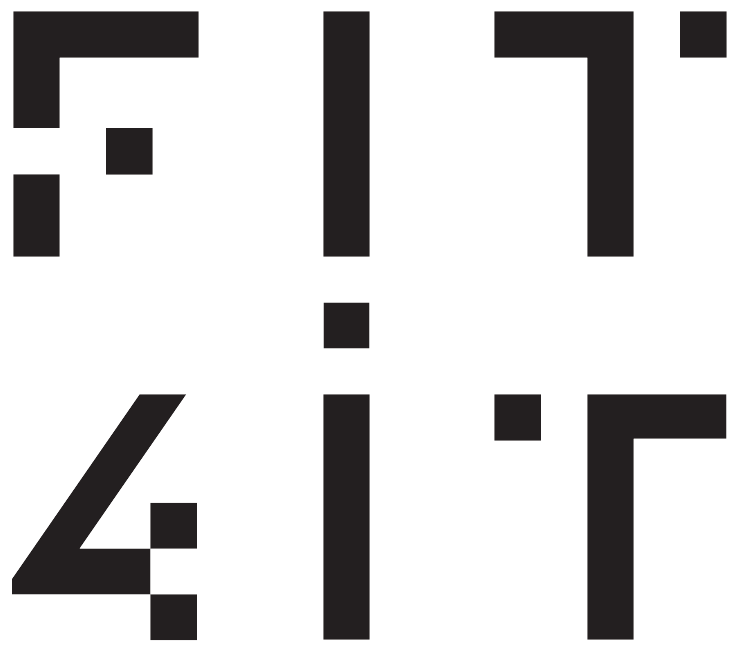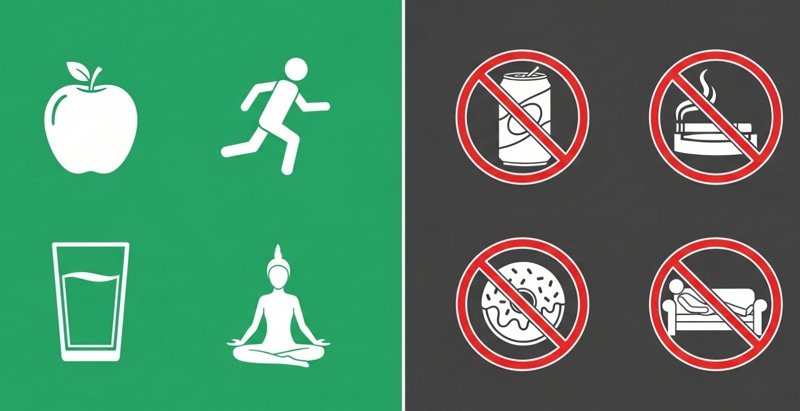Many people form unhealthy habits without realizing the long-term damage they cause. Sleep loss, too much sitting, sugar overload, and ignoring stress all chip away at energy, mood, and long-term well-being. The reality is different, as small choices add up, stress piles on, and your body registers every pattern.
What this really means is you cannot take these patterns lightly. That’s why this post explores the unhealthy habits you should not ignore and offers specific ways to break them before consequences catch up.
Sleep Loss
When you skip sleep regularly, it messes with mood, memory, immunity, weight, and stress levels. According to the National Heart, Lung, and Blood Institute, adults need around seven to eight hours nightly to lower risks of heart disease, obesity, diabetes, stroke, and depression.

Design a defined sleeping schedule
That’s why lack of sleep is one of the most harmful unhealthy habits that you should not ignore at all. For beginners, set a bedtime, dim lights early, and keep screens off an hour before bed. Those steps help signal your brain that rest time is arriving. Here are a few helpful tips for better sleep:
| Sleep Disruptor | Why It Hurts | Better Alternative |
|---|---|---|
| Late-Night Screen Use | Suppresses melatonin, delays sleep | Read a book or listen to calm audio |
| Excess Caffeine | Raises alertness, prevents deep rest | Switch to herbal tea or water after 4 pm |
| Inconsistent Schedule | Confuses circadian rhythm | Keep bed time and wake time consistent |
| Bright bedroom light | Disrupts sleep quality | Use blackout curtains or eye mask |
Too Much Sitting
Spending hours sitting hurts your heart, raises cancer risk, traps fat, and increases mortality risk for inactive people. In fact, a PubMed study reports that adults over 45 who sit more than 10 hours daily face a doubled mortality risk compared to active people. To counter it, you don’t need gym sessions, but consistent breaks that reset posture and circulation.
Additionally, here are some helpful actions to reduce sitting:
- Stand during phone calls.
- Set a timer to stretch
- Walk every 45 to 60 minutes.
- Use stairs instead of elevators.
- Try a standing desk for part of the workday.
- Park farther from entrances to add steps.
Skipping Exercise
Beginners often skip workouts and say they lack time or energy. That leaves the heart weaker, metabolism slower, and the risk of diabetes and weight problems rising. Instead of forcing a full gym session, split movement into shorter sessions. Maybe walk 3 to 10 minutes after breakfast, or follow a simple circuit that certified trainers recommend.

Skipping exercise leaves your body weaker overall
While you might start small, those micro workouts build stamina fast, and consistency trumps intensity for new exercisers. Our guide on 3-hour per week workouts for busy people will also be helpful in this regard. If you are in Dubai, you should also explore our personal training services for customized workouts that fit your schedule.
Sugar Intake
Too much sugar, especially added sugar in processed snacks and drinks, damages your liver, raises heart and metabolic risks. It also contributes to diabetes and cancer. Experts suggest women limit intake to six teaspoons daily, while men limit intake to nine. Awareness is key because sugar often hides under names like fructose, maltose, corn syrup, and dextrose.
While our detailed guide on limiting sugar intake is recommended, this brief table will also help:
| Common Source | Hidden Sugar Names | Healthier Replacement |
|---|---|---|
| Soft drinks | High-fructose corn syrup | Sparking water with lemon |
| Breakfast cereals | Glucose, maltose | Oats with fruit and cinnamon |
| Packaged sauces | Corn syrup, dextrose | Homemade tomato or pesto sauce |
| Energy bars | Cane sugar, brown rice syrup | Nuts, seeds, or plain yogurt |
Smoking/Vaping
Tobacco smoking harms every organ in the body and raises risks of cancer, stroke, lung disease, gum damage, and heart complications. Vaping often gets marketed as safer, yet experts warn it delivers nicotine and chemicals that also damage cardiovascular and respiratory health. In short, these remain unhealthy habits too dangerous to ignore for anyone.

Smoking and vaping are equally injurious to health
Similarly, quitting these things often feels tough because nicotine alters brain reward pathways. Still, progress comes from gradual replacement, consistent boundaries, and persistence. We also understand that relapse happens, but it doesn’t erase gains if you reset quickly. Here is how you can counter this addiction:
| Risk Factor | Health Consequence | Helpful Alternative Practice |
|---|---|---|
| Nictone dependance | Anxiety, cravings, sleep problems | Gradual taper, use substitutes |
| Smoke inhalation | Lung cancer, COPD, stroke risk | Nicotine gum, breathing routines |
| Vaping Chemicals | Heart strain, unknown long effects | Physical activity during cravings |
| Social triggers | Peer pressure, relapse in gatherings | Choose smoke-free venues or new cues |
Excess Drinking
Heavy alcohol use interferes with nearly every system in your body. It damages the liver, disturbs sleep cycles, weakens immunity, and raises blood pressure. It also elevates cancer risk, particularly in the throat, colon, and liver. Even a moderate excess of alcohol can reduce focus and worsen mood. It means drinking freely without limits eventually creates more problems than what you call a relaxing weekend.
If leaving alcohol is a problem for you, we recommend taking professional help. At FIT4IT, our professional life coaches are trained to help people get hold of their lives. Here is a table with practical strategies to reduce alcohol intake:
| Drinking Pattern | Health Risk | Safer Approach |
|---|---|---|
| Daily heavy drinking | Liver disease, high blood pressure | Limit to set days per week |
| Binge sessions | Accidents, heart strain, regret | Pre-set drink count, pace yourself |
| Nightly “unwind” glass | Sleep disruption, dependency risk | Herbal tea, evening walk, stretching |
| Social pressure drinking | Overconsumption, loss of control | Decline politely, volunteer as driver |
Stress Ignored
Stress alone doesn’t kill, but chronic stress wears the body down. When cortisol levels remain elevated, immunity weakens, telomeres shorten, and heart health declines. Many people cope with scrolling, junk food, or overwork, which are unhealthy habits that amplify the strain.

Chronic stress can lead to depression
Upon leaving it unchecked, stress leads to insomnia, fatigue, and emotional burnout. So, to break the cycle, you need active stress management of your cortisol levels, not avoidance. Here are some helpful actions to manage stress:
| Stress Response | Impact on Health | Healthier Coping Choice |
|---|---|---|
| Doomscrolling | Increases anxiety, sleep loss | Screen-free breaks, light reading |
| Overeating | Weight gain, digestive issues | Prep balanced snacks, mindful meals |
| Ignoring rest | Fatigue, lowered immunity | Short naps, planned downtime |
| Withdrawal | Loneliness, prolonged worry | Call a friend, join group activity |
Beginners often fall into unhealthy habits without seeing how they quietly rob energy and mood. That said, each of these common traps that we have discussed above can be undone when you replace them with small moves. Use cues and support from professional trainers to get rid of these unhealthy habits and adopt a healthy lifestyle.
Was this helpful?
Good job! Please give your positive feedback
How could we improve this post? Please Help us.






No Comments